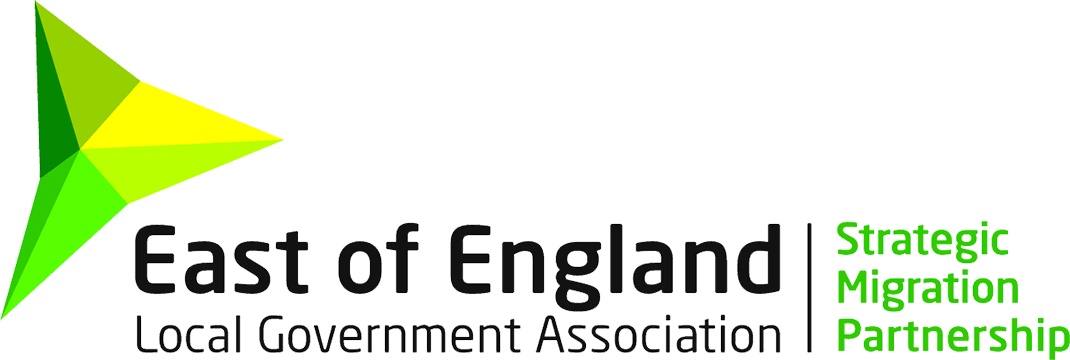Asylum Seekers
As a signatory to the 1951 United Nations Convention relating to the Status of Refugees, the United Kingdom has a legal obligation to consider all applications for asylum, or sanctuary, made in this country. Under the UN Convention anyone has the right to ask for asylum in another country if they are suffering persecution in their own.
In this region integration work with asylum seekers and refugees is led by the East of England Strategic Migration Partnership.
Who is an asylum seeker?
In the UK we define an 'asylum seeker', as someone who has fled to the UK, lodged an asylum claim with the UK Visas and Immigration (UKVI) at the Home Office and is awaiting a decision on that claim.
Who is a refugee?
If a person has their asylum claim granted they become a refugee. For this to happen they must have demonstrated a well-founded fear of persecution due to race, religion, nationality, political opinion or membership of a particular social group. In addition, they must be unwilling or unable to seek protection from their own country, or to return there, for fear of persecution.
The UK has a proud heritage of welcoming refugees, many of whom make a huge contribution to the enrichment of our national life, and some of whom have gone on to become well-known public figures through their achievements, despite facing immense adversity.
What is integration?
The European Council on Refugees and Exiles (ECRE) has agreed a Europe-wide definition of integration as:
"a long-term, two-way process of change that relates to both the conditions for and the actual participation of refugees in all aspects of life of the country of durable asylum as well as to the refugees' own sense of belonging and membership of European societies. The objective of integration programmes and policies should be the establishment of a mutual and responsible relationship between individual refugees, civil society and host states which promotes equality, self-determination and sustainable self-sufficiency and acceptance and positive action in favour of refugees by European governments and societies."
Streamlined Asylum Process
The Streamlined Asylum Process will enable decision-makers to take positive decisions on claims without conducting a personal interview where it is appropriate to do so.
Due to their high-grant rate, nationals of Afghanistan, Eritrea, Libya, Syria and Yemen who claimed asylum on or before 7 March 2023 have been specified for inclusion in the streamlined asylum process on the basis of their high-grant rate of protection status (refugee status or humanitarian protection). They have a grant rate of over 95% and over 100 grants of protection status in the year-ending March 2023.
Please refer to Migration statistics - GOV.UK (www.gov.uk) for further information.
Due to the on-going security and humanitarian situation in Sudan, it has been assessed that the indiscriminate violence threshold test set out in paragraph 339CA(iv) of the Immigration Rules is currently met in certain parts of Sudan. For this reason, Sudanese claims made on or after 28 June 2022, will be included in Streamlined Asylum Processing. Legacy Sudanese claims are being processed in the normal manner and will be decided by the end of 2023 in-line with the Prime Minister’s commitment.
Where possible, a decision in the Streamlined Asylum Process will be taken without an interview and protection status will be granted. Where the returned questionnaire does not provide sufficient evidence to grant protection status then an interview will be required. Where an interview is necessary to decide the claim, targeted and shorter interviews may be undertaken to ensure that decisions are being taken as efficiently as possible – this is beneficial for the claimant who will receive a decision sooner. No negative protection decisions will be reached without a substantive interview, as per the typical process.
This guidance will not apply to Unaccompanied Asylum-Seeking Children (UASCs) or Accompanied Asylum-Seeking Children (AASCs) who have claims not linked to a family group. Separate guidance has been developed for Streamlined Asylum Processing for children. For information on how to consider these claims please see Streamlined asylum processing for children guidance.
For more information, please refer to the government website:
Latest News
View more-
 2nd April 2024
2nd April 2024Number of Ukrainian guests supported in region exceeds 10,000
Read more -
 28th March 2024
28th March 2024Strategic Migration Partnership hub supports thousands of Hongkongers to settle in the east
Read more -
 19th March 2024
19th March 2024Hundreds of refugees who assisted UK in Afghanistan find new home in the east
Read more
